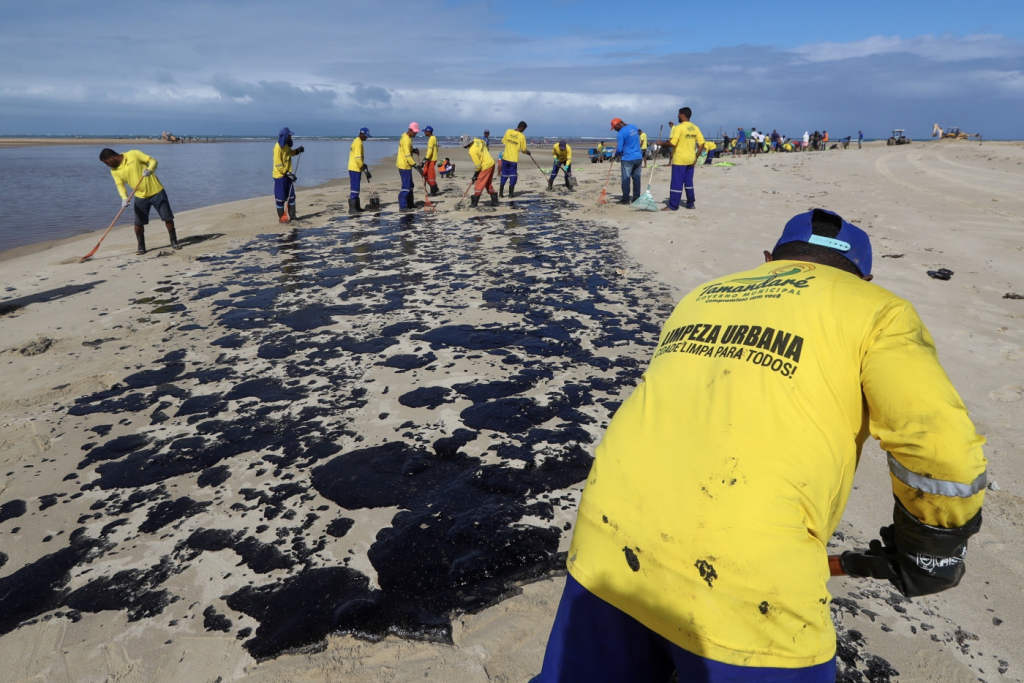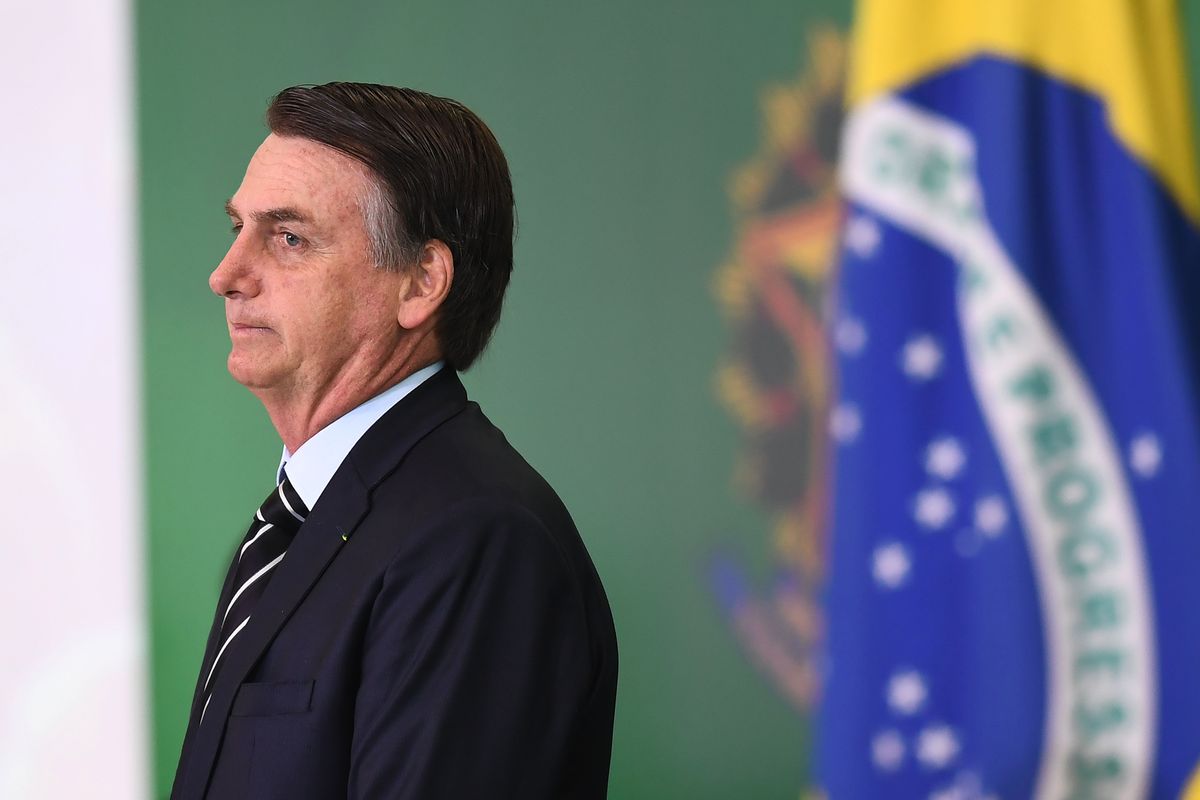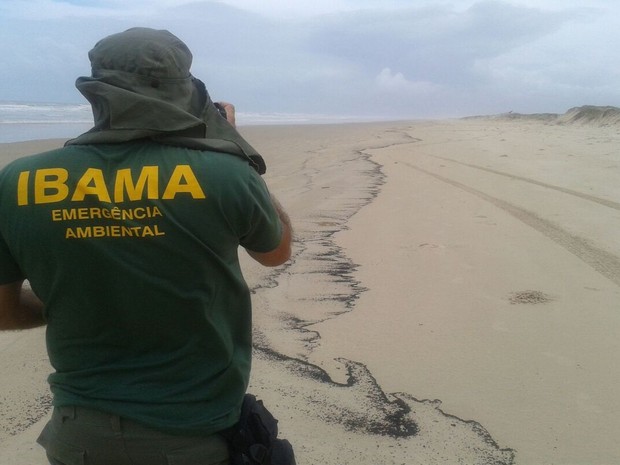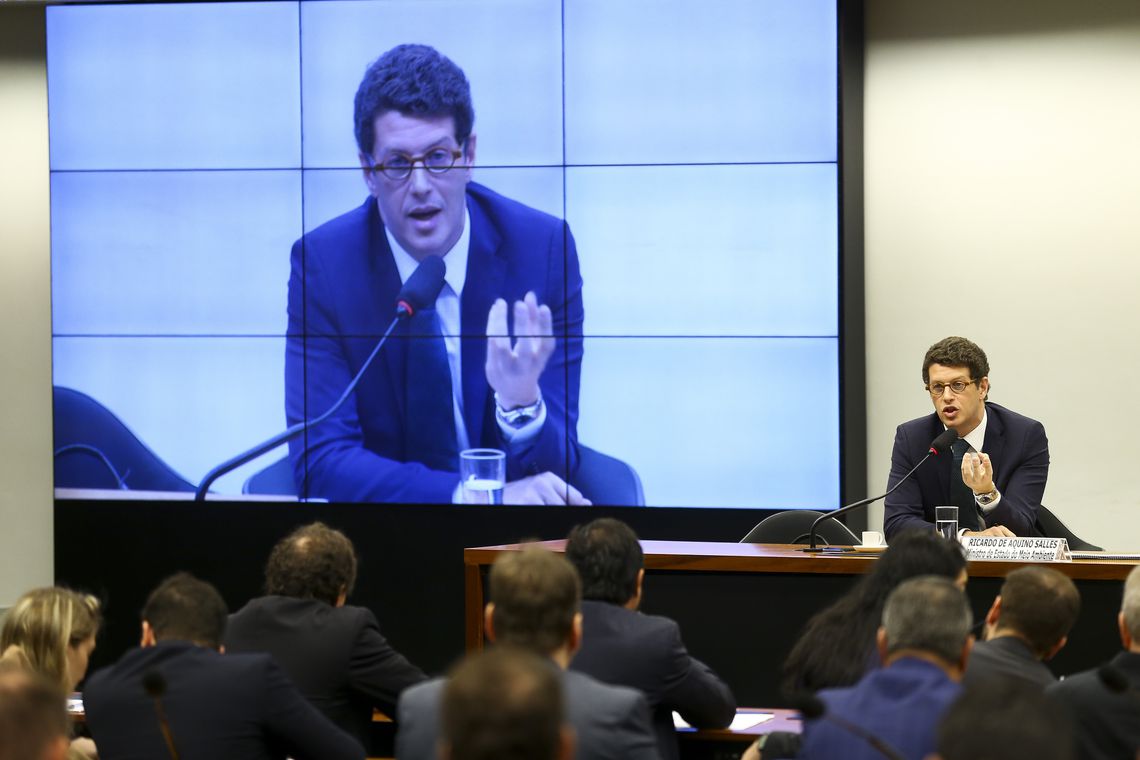RIO DE JANEIRO, BRAZIL – The dissolution by the Bolsonaro administration, in April, of dozens of federal boards, put an end to two committees that were part of the National Contingency Plan for Oil Pollution Incidents in Water (PNC), established in 2013.

On Thursday, October 17th, the Federal Prosecutor’s Office brought an action against the federal government for failing to act in the face of the greatest environmental disaster on the Brazilian coast and called on a federal court to compel the Union to put the PNC to work within 24 hours.
According to the Prosecutor’s Office, the federal government is not taking the appropriate measures to address this emergency.
By Friday, October 18th, 187 locations in 77 municipalities in the Northeast had been affected by oil slicks, according to IBAMA. The MPF said 2,100 kilometers in the region’s nine states have been affected since late August when the first oil slicks were sighted in Paraíba.
According to sources heard by Folha newspaper at the Environment Ministry, IBAMA and NGOs, the dissolution of the councils could be part of the reason behind the government’s tardiness and disorganization in the fight against oil slicks.
Instituted by the Dilma Rousseff government, the PNC aims to prepare the country for such cases. It also provides for the organization of different government agencies and the establishment of procedures for joint action by public officials in response to oil or fuel pollution incidents in Brazilian waters.
By decree, Bolsonaro dissolved councils, commissions, committees, boards and other bodies established by decrees or by lower administrative measures; only those established under the current administration as well as by law were preserved.
Two committees in the PNC structure were dissolved: the Executive Committee and the Support Committee. Both committees included the Ministry of the Environment, the Ministry of Mines and Energy, the Navy, IBAMA, and the National Petroleum Agency, among others.

It would be the Executive Committee’s task to prepare simulations and training of personnel and keep resources for emergency response. It was also its role to prepare the emergency response manual, which had not yet been approved.
The Support Committee was in charge of appointing human and material resources for actions to address oil incidents and releasing the access of professionals or imported equipment into the country.
As set forth in the plan, the government established a monitoring and assessment group, made up of Navy, IBAMA and ANP representatives, which examines the situation and sets priorities for Petrobras’ activities.
However, research in the Navy and IBAMA files shows that the few actions included the holding or attendance to seminars on the issue. In one of them, just last week, it was up to Petrobras to simulate by itself a response to an emergency.
There is no information on the performance of the other structures provided for in the plan, such as the Support Committee.
According to the decree, the national authority, represented by the Ministry of the Environment, is in charge of the National Contingency Plan.
But, so far, the work of oil cleaning and containment has been carried out by Petrobras under IBAMA coordination, although the company is not held accountable for the spill.
In a note, IBAMA says that it carries out the impact assessment and directs the response actions, while the state-owned company is in charge of hiring labor and organizing the work fronts.
Petrobras says it has deployed around 1,700 people to clean up the affected areas and over 50 of its own employees to plan and implement the response.

The state-owned company triggered its environmental defense centers and emergency structures in its operational units.
It is not yet clear who will pay the operation’s costs. The Ministry of the Environment has not yet answered questions regarding the activation and operation of the National Contingency Plan.
The dissolution of the PNC committees is part of the problem, aggravated by shortcomings in the MMA’s staff, according to Anna Carolina Lobo, coordinator of WWF-Brazil’s Atlantic and marine forest program.
The complexity of the leak faced is still to be determined, considering that its source or actual size is not yet known, which hinders possible containment measures, and the fact that the oil slick typically moves below the sea surface, which makes satellite detection difficult.
The Monitoring and Assessment Group is the most important branch of the National Contingency Plan for Oil Pollution Incidents in Water (PNC), according to an oil expert who chose to remain anonymous.
As a result, says the expert, the dissolution of committees should not have undermined the government’s response in the first place since they served to advise the group.
In addition to the MPF’s most recent action, the courts have already been called twice to determine that the government should act in the oil crisis.
In Sergipe State, the federal government was forced to implement protection barriers on the São Francisco, Japaratuba, Sergipe, Vaza-Barris and Real rivers.
On Friday, October 18th, the Federal Court of the State of Bahia ordered the setting up of a task force within 48 hours, comprising a representative from the Bahia MPF, one from the Union, one from the Navy, one from IBAMA, among others, to develop an information sharing platform to reduce environmental damage and monitor the affected areas.

In the decision, Federal Judge Rosana Kaufmann states that it is “possible to see that several measures are being taken in isolation without the necessary coordination and sharing of information”.
The first activity report must be submitted within five days, states the sentence.
President Jair Bolsonaro’s reactions on the matter focused on suppositions of alleged criminal action, with no evidence, and criticism of NGOs. The president also suggested that the organizations were ignoring the oil spill.
The president revisited the issue on Friday, October 18th. This time, he challenged whether the oil spill could have been committed intentionally to harm the mega auction of transfer rights, scheduled for November, and said again that the oil is Venezuelan.
IBAMA has confirmed the source but said this does not mean that Venezuela is responsible for the leak. Venezuela denied responsibility for the case last week.
On Twitter, the president said on Thursday, October 17th, that the federal government has set up a task force to intervene in the matter. He mentions the involvement of 1,700 environmental agents and 50 Petrobras employees in the operation coordinated by IBAMA.
On the other hand, the Minister of the Environment, Ricardo Salles, flew over the coast twice to check the oil slicks. On Wednesday, he said the most likely scenario is that the material “has leaked from a ship, either during transport from one ship to another or a malfunction or dumping”.
The visit was criticized by Governor Rui Costa. “He meets in secret, poses for a photo on the beach and leaves. No connection was made. It shows disregard, disrespect,” he said.
Salles added that it is impossible to determine how much oil is still in the sea or how to anticipate whether new slicks will emerge. Questioned by Folha, the minister and the MMA failed to reply.
Source: Folha de S.Paulo

